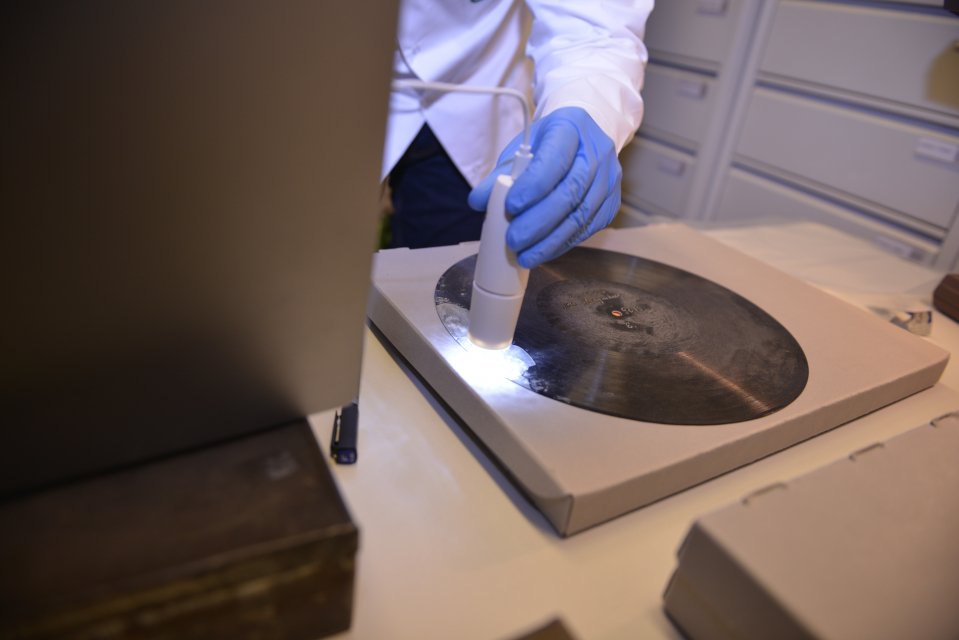Scientists from the University of Economics and the Jagiellonian University in Krakow and the Nicolaus Copernicus University in Toruń are researching historic phonograph records from the collections of Polish Radio, a collection inscribed on the UNESCO National Memory of the World List.
Researchers from Krakow analyzed the state of preservation of the discs in terms of microbiology in order to determine whether they can be preserved and read without a disinfection process, which may affect the material properties, making reading impossible. The results indicated slight microbial contamination of the surface of the discs which allows further research.
Scientists from the Nicolaus Copernicus University in Toruń are carrying out research on the degree of detachment of the layer with the recording of the soundtrack from the metal base of the discs. On the other hand, scientists from the Jagiellonian University are studying the chemical composition of the layer with sound recording. After completion of the research, the scientists will test the records and read the soundtrack. Some of the recordings in better condition have been already read and digitized.
The records studied by scientists are special objects of cultural heritage. They include the first appeals of Mayor Stefan Starzyński to the inhabitants of Warsaw, broadcast by the Polish Radio right after the outbreak of World War II, including his speech of September 11, 1939, saying “we contrast the shameful German brutality with moral strength and faith in the idea of Poland and victory”. There is also an appeal of September 12, 1939, with the words: “I need six hundred people ready to die for Warsaw.”
The records also feature a speech by Minister Józef Beck, information for Warsaw residents provided by Jeremi Przybora and a radio report by Julien Bryan, an American photographer and director documenting the outbreak of World War II in Warsaw.
Arkadiusz Słomczyński





